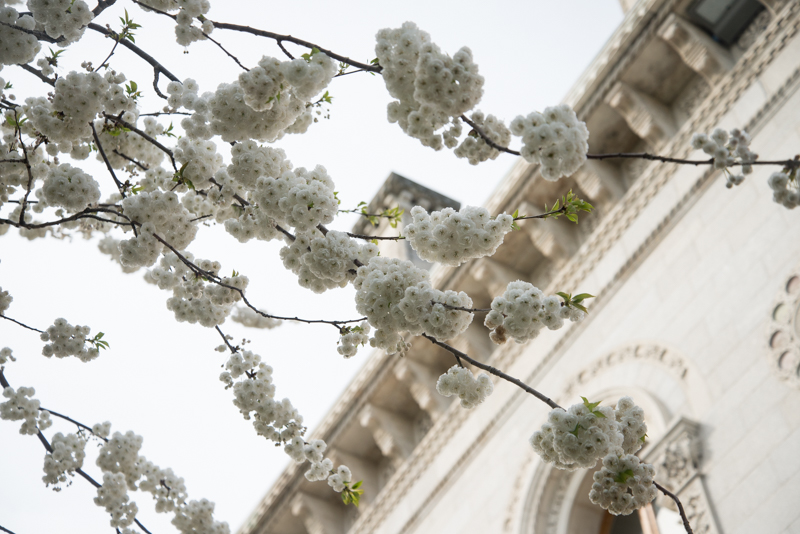At the start of October, Prof Anthea Butler, of the University of Pennsylvania, gave the Long Room Hub Annual Humanities Horizons Lecture on the topic: Irish Slaves in America: Myths, History, and the Problems of Social Media.
Butler talked about the use of the myth of Irish slavery, and the use of other myths or deliberately skewed historical narratives to indoctrinate people into white supremacy through the internet.
The myth in question comes from either deliberate lies or from conflating slavery with indentured servitude. Some white supremacists use this narrative to claim that African Americans were not particularly oppressed after all, and that the reason Irish–Americans are currently more privileged than them is due to some superiority on the part of the Irish.
This equates to silencing the experience of African–Americans by pedalling the false narrative that white people were at one point just as oppressed.
I don’t think this myth is as widespread in Ireland as it seems to be in right-wing America – most of us know that Africans were transported in hideous conditions across the Atlantic and sold in slave markets where they could be separated from their families, before being taken to work in frequently brutal conditions for the remainder of their lives. Most of us know that Irish people, despite having suffered poverty and discrimination in recent centuries, were not.
When discussing our history, I find that many people emphasise the times when the Irish have been the victims
But the details of how some Irish people, and people of Irish descent, made a great deal of money from the slave trade and from slave plantations in the New World, appear to be less known, and are certainly less frequently mentioned. Indeed, I have never heard Ireland’s connections to the slave trade mentioned by anyone other than academics.
Ireland’s involvement in colonialism is a part of our economic and cultural history, but whether by blissful ignorance or calculated avoidance, it seems that too many people are unaware of it. It just doesn’t really fit into the narrative we are given.
When discussing our history, I find that many people emphasise the times when the Irish have been the victims. They gloss over the complicity of other Irish people in painful moments in history and neglect to mention the times when other people might have been the victims of the Irish or of the Irish diaspora.
All nations do this to some extent. By emphasising the crimes committed against them, they deflect attention from the crimes they have committed, or even try to excuse such crimes.
Last year I posted an essay criticising my school’s trips to Zambia as being grounded on outdated European stereotypes about Africa. Stereotypes that enable us to feel like heroes while contributing very little meaningful help to a continent we have long exploited. While one of my classmates complimented my essay, he expressed surprise at my referring to the Irish teenagers who went to Zambia as “Europeans”.
History as a discipline rarely supports views of a binary world of good guys and bad guys with nothing in between – it is not a natural friend of totalitarianism
Even though the essay had just described their voluntourism in the context of the colonial European idea of “the White Man’s Burden”, he found it strange to mention Irish people within a history of European paternalism towards Africa. I believe that though he agreed that the Zambia project might be problematic, he was still not at all used to the idea of Irish people as perpetrators of such problems.
History, when properly taught, is the most effective way to abolish these myths and their harmful consequences. In her lecture, Butler stressed the importance of scholars from the arts and humanities being supported in efforts to educate the public in order to fight the disinformation of extremist groups that is used to radicalise, divide and inflame.
As such, the recent news that history will again be given core status at junior certificate level came as a great relief to me.
If you look closely enough, it becomes hard to label one group as eternally the victim and another as eternally the perpetrator, though history also shows us where certain groups have been far more systematically oppressed in the recent past. History as a discipline rarely supports views of a binary world of good guys and bad guys with nothing in between – it is not a natural friend of totalitarianism, and certainly not a friend of lazy generalisations. That is, when it is taught properly, by those who know how research should be done and who have done it themselves. Where people have been taught real history, and how to find it, it is far harder to teach them lies.
This is why, as Butler says: “At a time when universities are saying: ‘Do we really need the humanities? Do we really need people doing this kind of work in history and literature and religion and all of this?’ Now more than ever we need it.” We all need it, regardless of whether we formally study history or not.







